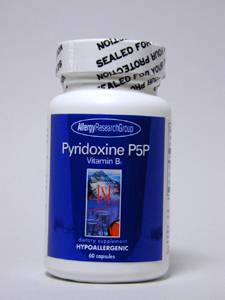23rd January 2010 - New research
THE AMERICAN PREVALENCE OF PARKINSON'S DISEASE
Neuroepidemiology [2010] 34 (3) : 143-151 .Annals of Neurology [2009]
66 (6) : 792-798 (Wright Willis A, Evanoff BA, Lian M, Criswell SR,
Racette BA.)
Complete abstract
The prevalence of Parkinson's Disease in the U.S.A.
has been found to differ enormously according to location, age and race. The
prevalence of Parkinson's Disease in some counties was found to be nearly 12 times
higher than in other counties. Urban areas were more affected than
rural areas. Elsewhere, the opposite is usually true.
 Parkinson's
Disease
is far from being evenly spread across the U.S.A.. The study revealed a concentration of Parkinson's Disease in the Midwest and Northeast regions of the
U.S.A.. Nebraska was previously shown to be the worst affected
Complete abstract.
In the over 65s there was found to be a prevalence in some areas of 1 in 7,
making it in those places a common medical disorder. Whites were affected with
Parkinson's Disease about twice as much as Blacks and Asians, though this
difference is progressively decreasing, especially between Blacks and Whites.
In order to refer to this
article on its own
click here.
Parkinson's
Disease
is far from being evenly spread across the U.S.A.. The study revealed a concentration of Parkinson's Disease in the Midwest and Northeast regions of the
U.S.A.. Nebraska was previously shown to be the worst affected
Complete abstract.
In the over 65s there was found to be a prevalence in some areas of 1 in 7,
making it in those places a common medical disorder. Whites were affected with
Parkinson's Disease about twice as much as Blacks and Asians, though this
difference is progressively decreasing, especially between Blacks and Whites.
In order to refer to this
article on its own
click here.
19th January 2010 - New research
PYRIDOXINE FOR PARKINSON'S DISEASE
Annals of Neurology [2009]
66 (6) : 792-798 (Elstner M, Morris CM, Heim K, Lichtner P, Bender
A, Mehta D, Schulte C, Sharma M, Hudson G, Goldwurm S, Giovanetti A, Zeviani M,
Burn DJ, McKeith IG, Perry RH, Jaros E, Kr�ger R, Wichmann HE, Schreiber S,
Campbell H, Wilson JF, Wright AF, Dunlop M, Pistis G, Toniolo D, Chinnery PF,
Gasser T, Klopstock T, Meitinger T, Prokisch H, Turnbull DM.)
Complete abstract
An increased risk of Parkinson's Disease has been found for the gene for
Pyridoxal kinase. Pyridoxal kinase is an enzyme. Enzymes are chemicals
naturally produced by the body that turn one substance in to another in the
body. Pyridoxal kinase ultimately turns the Vitamin B6 (pyridoxine) via
pyridoxal in to pyridoxal phosphate. This is why people need to consume vitamin B6 (pyridoxine) in order to
produce pyridoxal phosphate.
 Pyridoxal phosphate (and therefore pyridoxine) is very important for
Parkinson's Disease because it is essential for making use of L-dopa. So without
pyridoxine and pyridoxal phosphate, L-dopa is virtually useless. L-dopa simply
could not form dopamine. It is therefore not surprising that a disturbance in
the gene that makes pyridoxal phosphate can make somebody more likely to develop
Parkinson's Disease. Pyridoxine was actually one of the first means of treating
Parkinson's Disease. In the 1940's pyridoxine was independently being used
in the U.S.S.R. and in the
U.S.A.. However, large quantities of pyridoxine (30mg or more) can have a
detrimental effect, because it breaks down L-dopa in drug form before it is
used. In order to refer to this
article on its own
click here.
Pyridoxal phosphate (and therefore pyridoxine) is very important for
Parkinson's Disease because it is essential for making use of L-dopa. So without
pyridoxine and pyridoxal phosphate, L-dopa is virtually useless. L-dopa simply
could not form dopamine. It is therefore not surprising that a disturbance in
the gene that makes pyridoxal phosphate can make somebody more likely to develop
Parkinson's Disease. Pyridoxine was actually one of the first means of treating
Parkinson's Disease. In the 1940's pyridoxine was independently being used
in the U.S.S.R. and in the
U.S.A.. However, large quantities of pyridoxine (30mg or more) can have a
detrimental effect, because it breaks down L-dopa in drug form before it is
used. In order to refer to this
article on its own
click here.
7th January 2010 - New research
WELL WATER AS A CAUSE OF
PARKINSON'S DISEASE
Environmental Health
Perspectives [2009] 117 (12) : 1912-1918 (Gatto NM, Cockburn M, Bronstein J, Ritz B, Manthripragada AD)
Complete abstract
Investigators have hypothesized that consuming pesticide-contaminated well water
plays a role in Parkinson's Disease, and several previous epidemiology studies
support this hypothesis. Researchers investigated whether consuming water from
private wells located in areas with documented historical pesticide use was
associated with an
increased
risk.
 They separately examined six pesticides (diazinon, chlorpyrifos,
propargite, paraquat, dimethoate, and methomyl) from among 26 chemicals selected for
their potential to pollute groundwater or for their relevance to Parkinson's
Disease, and because at least 10% of their population was exposed to them.
People with Parkinson's Disease were more likely to have consumed private well
water and to have consumed it on average 4.3 years longer than normal. High
levels of three of the pesticides (methomyl, chlorpyrifos, propargite) resulted
in a 70% to 90% increase in the risk of Parkinson's Disease. The study
demonstrated that consuming well water presumably contaminated with pesticides
can increase the likelihood of Parkinson's Disease.
In order to refer to this
article on its own
click here.
They separately examined six pesticides (diazinon, chlorpyrifos,
propargite, paraquat, dimethoate, and methomyl) from among 26 chemicals selected for
their potential to pollute groundwater or for their relevance to Parkinson's
Disease, and because at least 10% of their population was exposed to them.
People with Parkinson's Disease were more likely to have consumed private well
water and to have consumed it on average 4.3 years longer than normal. High
levels of three of the pesticides (methomyl, chlorpyrifos, propargite) resulted
in a 70% to 90% increase in the risk of Parkinson's Disease. The study
demonstrated that consuming well water presumably contaminated with pesticides
can increase the likelihood of Parkinson's Disease.
In order to refer to this
article on its own
click here.
.gif)
.gif)
 Parkinson's
Disease
is far from being evenly spread across the U.S.A.. The study revealed a concentration of Parkinson's Disease in the Midwest and Northeast regions of the
U.S.A.. Nebraska was previously shown to be the worst affected
Parkinson's
Disease
is far from being evenly spread across the U.S.A.. The study revealed a concentration of Parkinson's Disease in the Midwest and Northeast regions of the
U.S.A.. Nebraska was previously shown to be the worst affected
 Pyridoxal phosphate (and therefore pyridoxine) is very important for
Parkinson's Disease because it is essential for making use of L-dopa. So without
pyridoxine and pyridoxal phosphate, L-dopa is virtually useless. L-dopa simply
could not form dopamine. It is therefore not surprising that a disturbance in
the gene that makes pyridoxal phosphate can make somebody more likely to develop
Parkinson's Disease. Pyridoxine was actually one of the first means of treating
Parkinson's Disease. In the 1940's pyridoxine was independently being used
in the U.S.S.R. and in the
U.S.A.. However, large quantities of pyridoxine (30mg or more) can have a
detrimental effect, because it breaks down L-dopa in drug form before it is
used. In order to refer to this
article on its own
Pyridoxal phosphate (and therefore pyridoxine) is very important for
Parkinson's Disease because it is essential for making use of L-dopa. So without
pyridoxine and pyridoxal phosphate, L-dopa is virtually useless. L-dopa simply
could not form dopamine. It is therefore not surprising that a disturbance in
the gene that makes pyridoxal phosphate can make somebody more likely to develop
Parkinson's Disease. Pyridoxine was actually one of the first means of treating
Parkinson's Disease. In the 1940's pyridoxine was independently being used
in the U.S.S.R. and in the
U.S.A.. However, large quantities of pyridoxine (30mg or more) can have a
detrimental effect, because it breaks down L-dopa in drug form before it is
used. In order to refer to this
article on its own
 They separately examined six pesticides (diazinon, chlorpyrifos,
propargite, paraquat, dimethoate, and methomyl) from among 26 chemicals selected for
their potential to pollute groundwater or for their relevance to Parkinson's
Disease, and because at least 10% of their population was exposed to them.
People with Parkinson's Disease were more likely to have consumed private well
water and to have consumed it on average 4.3 years longer than normal. High
levels of three of the pesticides (methomyl, chlorpyrifos, propargite) resulted
in a 70% to 90% increase in the risk of Parkinson's Disease. The study
demonstrated that consuming well water presumably contaminated with pesticides
can increase the likelihood of Parkinson's Disease.
In order to refer to this
article on its own
They separately examined six pesticides (diazinon, chlorpyrifos,
propargite, paraquat, dimethoate, and methomyl) from among 26 chemicals selected for
their potential to pollute groundwater or for their relevance to Parkinson's
Disease, and because at least 10% of their population was exposed to them.
People with Parkinson's Disease were more likely to have consumed private well
water and to have consumed it on average 4.3 years longer than normal. High
levels of three of the pesticides (methomyl, chlorpyrifos, propargite) resulted
in a 70% to 90% increase in the risk of Parkinson's Disease. The study
demonstrated that consuming well water presumably contaminated with pesticides
can increase the likelihood of Parkinson's Disease.
In order to refer to this
article on its own